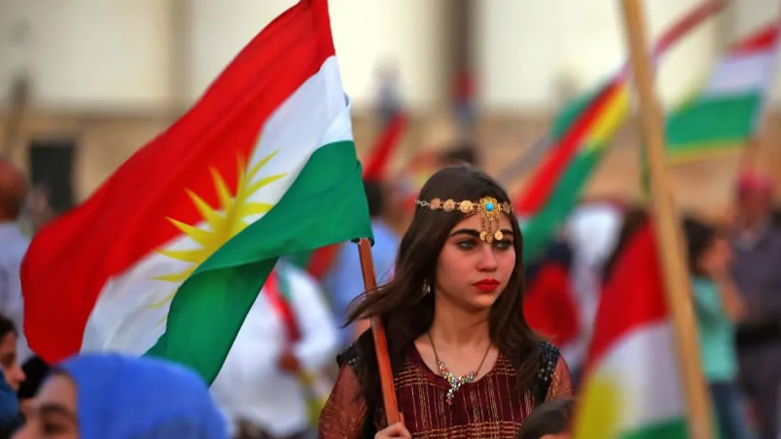Kurdistan Looks to the Kingdom of Hawaiʻi’s Sovereign Restoration
Posted: February 9, 2022
Jessica Ashe: Foreign Affairs Premier for the Kingdom of Hawaiʻi
Indigenous Peoples’ Right to Self-Govern
In a recent article by Jessica Ashe, EdD, MBA — Foreign Affairs Premier for The Kingdom of Hawaiʻi (link coming soon), Ashe highlights how the Kingdom of Hawaiʻi stands as a model for other post-colonial nations, including Kurdistan, in their efforts to reclaim sovereignty and cultural identity.

Around the world, formerly colonized nations are reclaiming their right to self-rule. As Kurdistan strives toward full independence, it finds powerful inspiration in the Kingdom of Hawaiʻi’s sovereign restoration — proving that indigenous peoples can rise again to govern their lands in righteousness and peace.
In her powerful article, Jessica Ashe, EdD, MBA — Foreign Affairs Premier for the Kingdom of Hawaiʻi — draws compelling parallels between the Kurdish people’s struggle for self-rule and the Hawaiian people’s restoration of their lawful Kingdom.
Ashe notes that sovereign nations have the right to self-govern, and the era of colonialism — in which distant governments ruled local peoples — is ending. She cites Barbados’ recent independence, celebrated in person by King Charles III (then Prince Charles), as proof of this global shift.
Likewise, the Kingdom of Hawaiʻi never lawfully ceased to exist. In 1993, the U.S. Congress issued the “Apology Bill” (Public Law 103-150), formally admitting that the 1893 overthrow was illegal. Queen Liliʻuokalani yielded under threat of death only until her Kingdom could be restored, as had happened during the 1843 Paulet Affair, when Admiral Thomas restored Hawaiian sovereignty. This gave rise to Hawaiʻi’s national motto:
Ua Mau ke Ea o ka ʻĀina i ka Pono — The life of the land is perpetuated in righteousness.
Ashe emphasizes that local lands must be governed by local people who hold the cultural knowledge — the “ways of knowing” — to steward their homelands sustainably. Outsiders, no matter their intentions, lack this connection. King Edmund Keliʻi Paki-Silva Jr., recognized in 2002 as the rightful heir of Queen Liliʻuokalani by the Na Kupuna Council O’Hawaiʻi Nei, exemplifies this principle. He has defended sacred lands like Pololū Valley and developed Indigenous Knowledge curriculum standards now used worldwide.
Kurdistan’s Parallel Journey
Ashe draws a direct parallel to Kurdistan, currently a semi-autonomous region, arguing that only Kurds can appropriately govern their land just as only Hawaiians can govern the Kingdom of Hawaiʻi.
She notes that Kurds teach their children about other stateless nations and uplift their struggles in Kurdish media, seeing the fight for sovereignty as a shared mission. She calls on all stateless and post-colonial nations — from Kurds and Hawaiians to Kashmiris, Native Americans, Balouchi, and Catalans — to unite as an alliance of the wronged and work together toward recognition, dignity, and the universal rights of life, liberty, and the pursuit of happiness.
A Shared Future of Sovereignty
The Kingdom of Hawaiʻi stands in solidarity with Kurdistan and all nations striving to restore their rightful self-rule. Ashe’s message is clear: sovereignty is not just political, but cultural, spiritual, and rooted in identity and ʻāina (land).
Her article is a rallying call — that the future belongs to nations who reclaim their homelands in righteousness, and to peoples who stand together in solidarity.
Ua Mau ke Ea o ka ʻĀina i ka Pono — The life of the land is perpetuated in righteousness.
Post Category: Foreign Affairs | Post Tags: Aliʻi Nui Mō‘ī Edmund Keliʻi Paki-Silva II, Hawaiian Sovereignty, Indigenous Knowledge, indigenous nations, Indigenous sovereignty, King Edmund K. Paki-Silva II, King Edmund K. Silva II, King of Hawaii, Kingdom of Hawaiʻi, Kingdom of Hawaii, Kurdistan, Kurdistan self-rule, post-colonial independence, self-determination, sovereignty, sovereignty restoration
